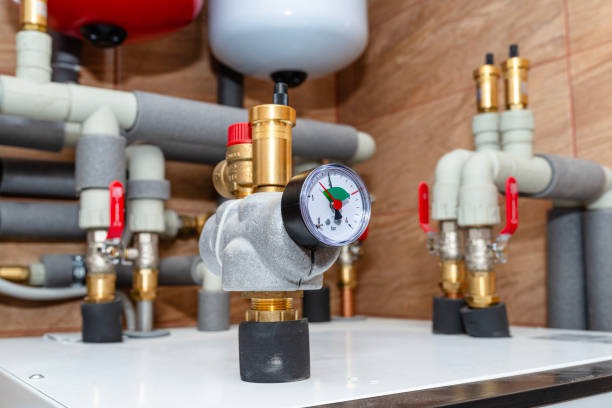
When was the last time you thought about the maintenance of your heating system? Whether at home or in commercial settings, regular maintenance can often slip through the cracks amidst our busy lives. However, it’s one of those things that shouldn’t be ignored. Just like your car requires oil changes and tire rotations, your heating system needs constant attention to run efficiently. Keeping things in tip-top shape can help save on fuel costs considerably.
In this article, we’ll look into the various ways regular upkeep can ensure you’re getting the most out of your heating system, benefiting both your wallet and the environment.
1. Why Is Regular Maintenance Crucial
Routine maintenance might sound like an extra chore, but in the long run, it can potentially save you a significant amount on fuel expenses. Why? Systems that are regularly maintained operate more efficiently, using less fuel to produce the same amount of heat. When a system is neglected, it has to work harder, consuming more fuel and costing you more money.
Fuel Efficiency: Why It Matters
Fuel efficiency isn’t just a fancy term; it’s an essential aspect of running a cost-effective and environmentally friendly heating system. The less fuel you use, the lower your carbon footprint. Plus, with heightened concern over climate change, using energy efficiently benefits everyone.
2. Saving Fuel at Home with Regular Maintenance
Homeowners can greatly benefit from routine system checks. Simple tasks like changing filters or having a professional winterize your heating system can make a world of difference. If your house has specific heating needs, consider installing quality fireplace inserts for homes to ensure optimal energy use. These inserts are not just about aesthetics; they’re about efficiency as well, making sure every bit of fuel contributes to warming your space without wastage.
Energy Assessments and Home Audits
Getting an energy audit might sound like overkill, but knowing how much energy your home utilizes every season can help in discovering where you’re losing efficiency. An audit can highlight areas that need sealing or suggest an upgrade of outdated equipment that might be using more fuel than necessary.
Quick Maintenance Tips for Home Heating Systems
-
Regularly check and replace air filters
-
Clean heating ducts and vents
-
Schedule annual inspections
-
Seal windows and doors to prevent drafts
3. Commercial Fuel Saving with Routine Maintenance
For businesses, fuel efficiency can represent a substantial chunk of the operational budget. In most commercial settings, heating is a huge expense, and using high-efficiency systems managed by home and commercial fuel delivery experts can ensure you’re not burning more dollars than necessary. An expert can advise on the best ways to optimize your current system to suit business needs, which can vary significantly from residential requirements.
Professional Inspection
It is crucial for commercial places to conduct professional inspections regularly. Qualified technicians can identify issues an untrained eye might miss, such as leaks in the fuel lines or blockages within the system. Sometimes, a small leak or blockage can escalate into a significant fuel drain, thereby dramatically increasing costs if not rectified.
Preventive versus Corrective Maintenance
-
Preventive Maintenance: Regular checks and timely upgrades
-
Corrective Maintenance: Fixing issues only when they arise, which might be costlier
4. How Maintenance Saves on Costs in the Long Run
While it’s clear that maintenance saves fuel, it also helps avoid future repairs. Systems that aren’t well-maintained tend to break down more frequently, resulting in unforeseen expenses that could have been prevented. This scenario applies to both residential and commercial settings.
Implementing a Maintenance Schedule
Establishing a regular schedule for maintenance can help streamline the process. Whether it’s reminders on your phone, calendar alerts, or bookings with a local service provider, getting into a habit of scheduling maintenance can be half the battle won.
Steps to Develop a Maintenance Schedule
-
Evaluate your current system
-
Check manufacturer guidelines for maintenance intervals
-
Set up reminders or alerts
-
Use a trusted service provider for inspections
5. Working with Professionals for Optimal Results
While DIY maintenance can help, it’s always wise to call in professionals for a thorough check-up. They have the expertise needed to spot potential issues before they become significant problems. Here’s where choosing the best fleet fuel delivery company can also play a crucial role. They understand the intricacies of fuel management and ensure that you’re getting the right type of fuel in optimal conditions, preventing system strain.
Finding the Right Service Provider
Not all service providers are created equal. When looking for the right expertise, consider experience, reputation, and customer reviews to ensure you’re choosing someone who really knows what they’re doing.
Qualities of a Trustworthy Maintenance Expert
-
Years of industry experience
-
Positive customer testimonials
-
Licensed and insured professionals
-
Transparent pricing without hidden fees
6. Environmental Benefits of Regular Maintenance
One often-overlooked aspect of staying on top of maintenance is the reduction in environmental footprint. Systems that consume less fuel emit fewer greenhouse gases, contributing to a cleaner planet. Whether your focus is on saving money or reducing carbon emissions, regular maintenance aligns with both goals.
Energy Efficiency Equals Environmental Efficiency
Eco-friendly practices often stimulate questions about initial costs. Still, when you factor in the savings on fuel and repairs over time, regular system maintenance becomes a cost-effective and environmentally responsible choice.
Final Thoughts
Regular maintenance is the often unsung hero behind efficient heating systems, be it at home or an office. We’re always looking for ways to cut back on expenses, and taking the time to ensure our systems are in excellent shape offers a direct way to achieve this. Through simple steps like air filter changes, regular inspections, and better choices about heating methods, anyone can start saving costs while contributing to a healthier environment.
Remember, heating is not just about staying warm; it’s about doing so wisely and sustainably. So, why not commit to routine maintenance today? Your wallet—and the planet—will thank you.
